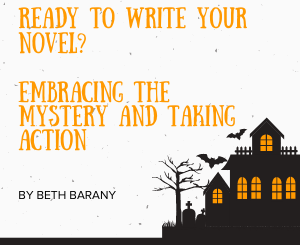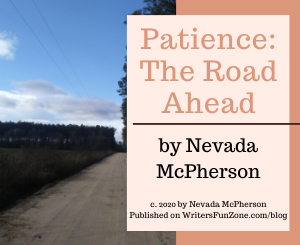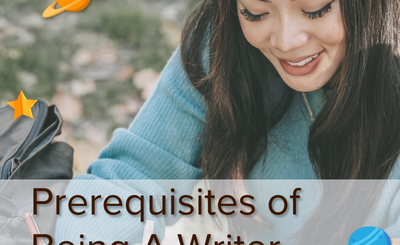NaNoWriMo: Purists Read No Further! by Martin Haworth
 Let’s welcome back monthly columnist Martin Haworth as he shares with us “NaNoWriMo – Purists Read No Further!” Enjoy!
Let’s welcome back monthly columnist Martin Haworth as he shares with us “NaNoWriMo – Purists Read No Further!” Enjoy!
***
This time last year, I was faced with a challenge that I never thought I would take up. I’d written a few short stories and lots of non-fiction articles, as well as a whole raft of short e-books on leadership, but I’d never written a whole novel. But never wanting to miss an opportunity to try something new, I decided the time had come to do my 50,000 words.
NaNoWriMo
In November, with darkening evenings and weather to match, NaNoWriMo, came to bite me.
I have a fairly short attention span, and so short works became the writing I loved to do and indeed they still are. The concept of writing 50,000 words – one word at a time – over the period of just month was not anything that I took lightly, and in many ways, was not something I was looking forward to at all. But a challenge is a challenge and at least if I was able to do it, I could take it off my wish list, bored to death for a month though I might be!
It became apparent, very early on, that this was going to be hard work. And all the usual challenges that writers experience such as blank-page mornings; headaches; severe and regular hunger; Facebook, and that filing cabinet that needed sorting out very urgently, all showed their faces. Something radical was going to be needed to get the work done.
 For many years, Dragon for Mac had been sitting on my computer, misunderstood and unused. Here seemed to be the perfect time to spend a couple of days getting used to it; understanding it, and putting the cost of it to good use. Added to which, I also brought Scrivener to structure and organise my novel as I wrote it. This would keep me busy for a good while, all to advance to purpose of getting that book written. So, these would be my new distractions.
For many years, Dragon for Mac had been sitting on my computer, misunderstood and unused. Here seemed to be the perfect time to spend a couple of days getting used to it; understanding it, and putting the cost of it to good use. Added to which, I also brought Scrivener to structure and organise my novel as I wrote it. This would keep me busy for a good while, all to advance to purpose of getting that book written. So, these would be my new distractions.
Very quickly I found that I couldn’t hack Scrivener at all, and to this day it still sits there looking at me as an unloved icon at the bottom of my screen accusingly reminding me that I didn’t work at it hard enough. In the end I used to far simpler program called Ulysses to get the book written.
But with Dragon for Mac, I found a new friend, and was, much to my surprise, able to crack 62,000 words in just 16 days, including that initial learning phase of a couple of days at the beginning. They say the most important thing is to get the words down on paper, however rubbish they are, for you can’t edit blank sheet. This was the driving force for me, as I merrily sat and dictated between 3000 and 5000 words pretty well every day. The dictation wasn’t perfect, nor was Dragon for Mac itself, which at that time was going through a new version. Many people were struggling and complaining bitterly about it, even to the extent of buying the Windows program and using the emulator on their Mac. I never had many problems with it at all, and indeed now after several iterations on the original new version, it seems the working perfectly well for everyone.
What I did find with Dragon for Mac was that it could be quirky, but so could I. If I did not behave the way the program expected me to (such as talking too quickly; using strange words; failing to appreciate the thick accent that I have), it didn’t have much hope. But once I got used to it, and it got used to me, it behaved pretty effectively.
As far as the book went, I stripped out some 14,000 words before I sent it to my editor, and her 15-page report give me hope for the future. The experience had changed my concerns that dictation software might impact my writing, particularly my voice. As a natural pantser, I found that this did not work particularly well when I was dictating a story, so in future I learned that I needed to plot a lot better, to avoid me going off-track.
So now, I use mind-mapping software to plot out the story as best I can and that’s able to me to keep on track with the story up to a point. It does not, however, prevent me from being creative, which I thought plotting might. The amount of editing I had to do from the first run through about 62,000 words was horrendous, and really caused me a lot of challenges and time wasted.
Try dictating your story
For those of you thinking of doing NaNoWriMo this year, I have an option for you which might help. Try dictating your story using some kind of dictation software. As I’m speaking this article, I’m using Apple’s own software on my Mac. This is a bit more difficult than Dragon for Mac, because it’s not as accurate (Dragon for Mac learns from you, as long as you take the time to let it learn). I now dictate many of my short stories directly into my iPhone using Siri, but that does require me to stop every 50 words also because it uses the cloud to interpret what I say and occasionally needs a rest.
So, will I be doing NaNoWriMo again this year? I’m afraid not. Because I have moved onto different things, after learning a lot with NaNoWriMo, but I have a box that is ticked and therefore do not need to spend my time doing something that is not quite where I want to be.
If you are up for it, then you have my very best wishes. And I’ll be thinking of you as I relax.
***
ABOUT MARTIN HAWORTH
 Martin Haworth is a coach, trainer and would-be fiction author with a manuscript that “needs work.” He lives in Gloucester, England and has two grown-up kids and three grandchildren. He loves walking, travel, and supporting Burnley Football Club. Check out his website at http://martinhaworth.com.
Martin Haworth is a coach, trainer and would-be fiction author with a manuscript that “needs work.” He lives in Gloucester, England and has two grown-up kids and three grandchildren. He loves walking, travel, and supporting Burnley Football Club. Check out his website at http://martinhaworth.com.







I am a big fan of Dragon. I’ve recently started using it for my journaling and have used it to compose emails and such.
As for my fiction, I see no reason not to use it. If it worked for you for NaNo, then why not use it? The purpose of that month is to get the words out and get the writing done. In the early days of typewriters, I am sure there were those who said it took away from the personal touch of writing by hand. When word processors and spell check and the backspace key became popular, there were typing purists who thought it made writing “too easy” and people had to be less educated. People will react the same way to dictation. When technology allows us to think our books into existence, dictation purists will balk.
Good luck with your book!